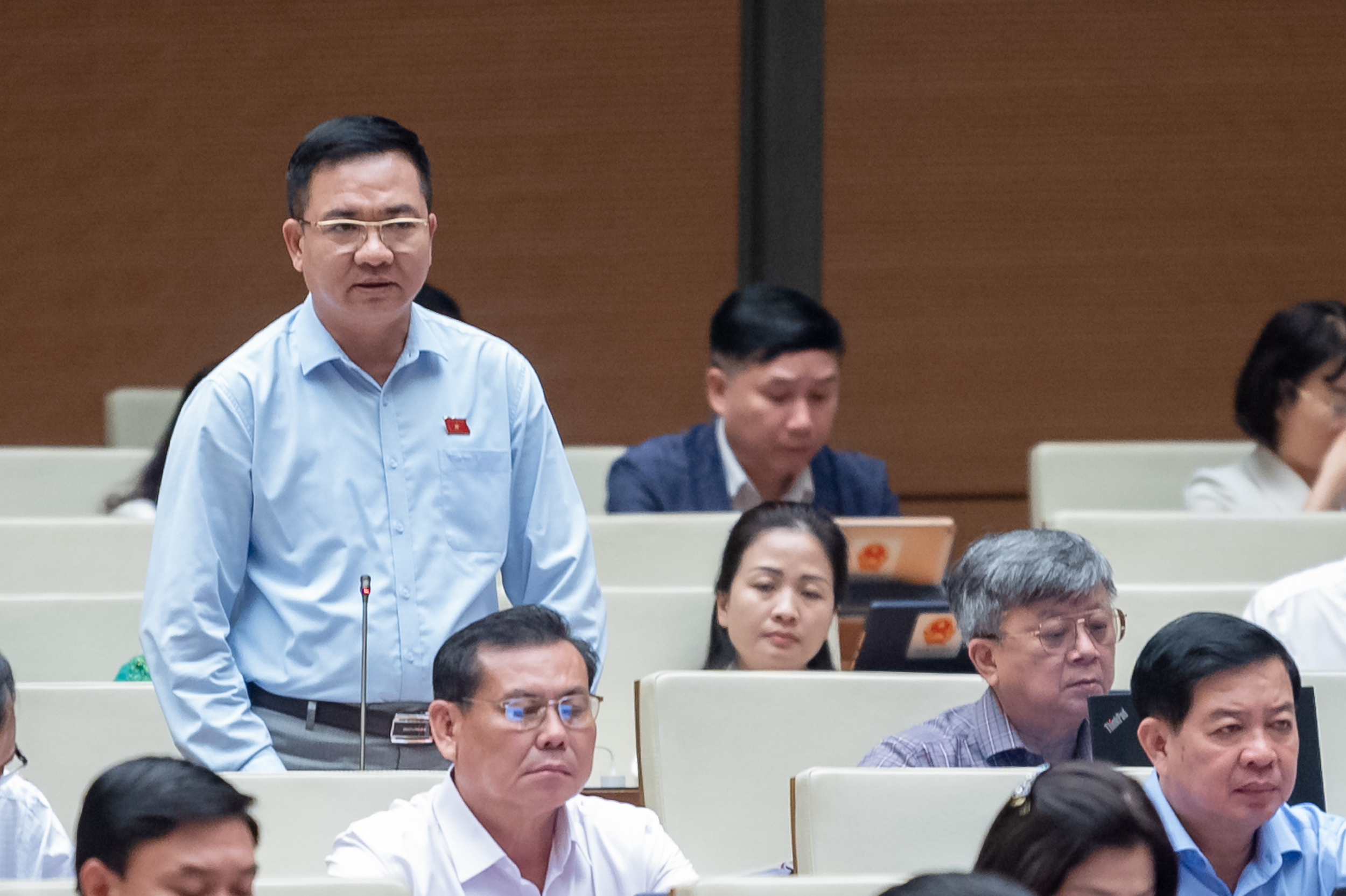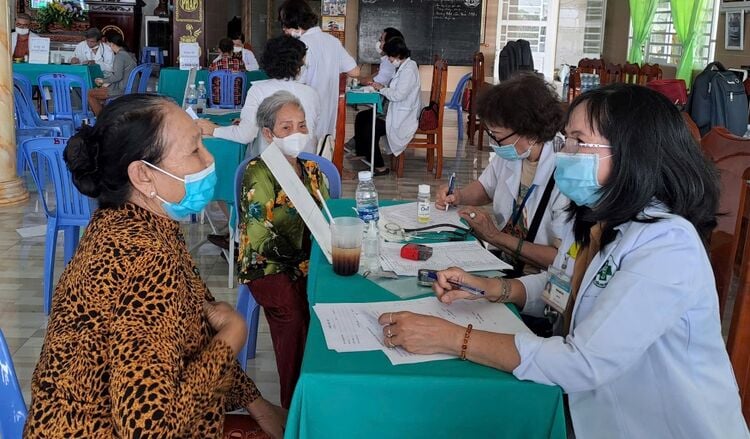Discussing in the hall about some content with different opinions of the draft Law on Identification on the morning of October 25, National Assembly Deputy Luu Ba Mac (Lang Son delegation) suggested that the drafting agency consider removing the regulation requiring the collection of biometric information about the iris, as in Point b, Clause 3, Article 23 of the draft law.
At the same time, it is possible to consider adding the collection of biometric information about the iris, to point d, clause 1, Article 16, similar to DNA and voice.
According to the delegate, the collection of biometric information about the iris should only be regulated when people voluntarily provide it or during the process of resolving a case according to assigned functions and tasks, the prosecution agency, the agency managing the person subject to administrative handling measures, has to conduct an appraisal or collect biometric information about the iris, as with DNA and voice of the people.

National Assembly Delegate Luu Ba Mac expressed his opinion.
Regarding personal information in the national population database, including blood type, National Assembly Delegate Pham Thi Kieu - National Assembly Delegation of Dak Nong province suggested that the drafting agency should re-study because it would greatly affect personal privacy and cause other negative consequences if this personal information were made public, and it is also inconsistent with the Law on Residence.
Speaking, National Assembly Deputy Pham Van Hoa (Dong Thap delegation) expressed his agreement with the need to issue electronic ID cards to citizens, which bring many conveniences when integrating a lot of information.
However, Hoa said many citizens have expressed concerns about whether chip-based ID cards and electronic ID cards will be tracked. To reassure citizens, the delegate asked the Ministry of Public Security to explain and clarify and disseminate information on this issue.
Commenting on the content shown on the ID card, the delegate from Dong Thap said that it is mandatory to have 7 main information such as full name, year of birth, nationality, gender...
However, the remaining cases should be shown as optional, encouraging people to provide more than the mandatory regulations to integrate into the ID card.
National Assembly Deputy Luong Van Hung (Quang Ngai delegation) said that Clause 1, Article 3 of the draft law stipulates: "Identification is basic information about a person's identity, background, identification characteristics and biometrics."
Delegate Hung suggested considering and researching replacing the phrase "basic" with the phrase "precise" to make the regulations more stringent.
Therefore, Clause 1, Article 3 is proposed to be amended to: “Identification is accurate information about a person’s identity, background, identifying characteristics and biometrics”. Regarding the person who is granted an identification card, Clause 3, Article 19 of the draft law stipulates: “People aged 14 and over must carry out procedures for issuing an identification card. People under 14 years old carry out procedures for issuing an identification card upon request”.
Delegate Hung proposed to consider removing the regulation “People under 14 years old carry out procedures for ID card issuance upon demand”, because children under 14 years old, especially children under 6 years old, cannot carry out civil transactions on their own. In case of being granted an ID card, civil transactions must still be carried out through their parents or guardians, this content will give rise to administrative procedures and implementation costs.

National Assembly Deputy Nguyen Minh Duc said that the regulation requiring the collection of biometric information about the iris is appropriate.
Speaking at the debate in the hall, National Assembly Deputy Nguyen Minh Duc (HCMC delegation) said that the regulation requiring the collection of biometric information about the iris is appropriate.
At the same time, the delegate analyzed that currently, the demand for beauty and facial editing is high, so facial recognition is difficult to control. However, the iris is an almost fixed identification feature. Therefore, the delegate believes that the regulation requiring the collection of biometric information about the iris is reasonable .
Source





![[Photo] Closing of the 11th Conference of the 13th Central Committee of the Communist Party of Vietnam](https://vstatic.vietnam.vn/vietnam/resource/IMAGE/2025/4/12/114b57fe6e9b4814a5ddfacf6dfe5b7f)

























![[Photo] Overcoming all difficulties, speeding up construction progress of Hoa Binh Hydropower Plant Expansion Project](https://vstatic.vietnam.vn/vietnam/resource/IMAGE/2025/4/12/bff04b551e98484c84d74c8faa3526e0)
































































Comment (0)